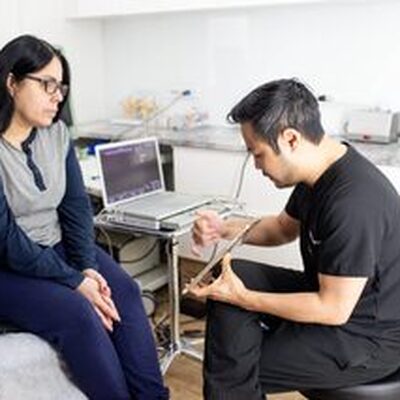Can varicose veins be treated?
Body
The introduction of novel, minimally invasive treatments has transformed how we treat varicose veins in the last 25 years. Vein stripping was the standard treatment for varicose veins for many years. Patients had to go to the hospital and be put to sleep due to this. The recuperation time from this procedure was frequently lengthy, and patients were often dissatisfied with the results. As the patient recovered from the surgery, he experienced a lot of discomforts and bruising. Thermal ablation and numerous non-thermal non-tumescent procedure choices are among the new varicose vein treatments that are less invasive.
It is essential to know about what doctor treats varicose veins. A vein surgeon is a specialist who has been trained to perform surgical operations to remove varicose veins. The vein surgeon makes an incision in the affected area and removes all damaged veins under general anesthesia. Although other doctors such as phlebologists, cardiologists, dermatologists, plastic surgeons, and even general surgeons can help you with varicose veins treatment, vascular surgeons and interventional radiologists have additional training that makes them better choices for diagnosing and treating even the most severe cases of varicose veins.
Varicose veins afflict more than one-third of persons in the United States at some point in their lives1, and the cause is usually genetic. Swollen, twisted, and bulging veins in the legs should not be dismissed as a cosmetic concern or an unavoidable indication of age. Varicose veins that go untreated might cause significant medical problems.
When should varicose veins be treated?
A vein aims to work against gravity and return blood from the legs to the heart. Venous reflux disease arises when the one-way valves in the veins fail, causing blood to flow in the opposite direction. Blood pools in the extremities due to defective valves, causing symptoms such as discomfort, itching, cramps, and skin discoloration. Beyond varicose veins, venous reflux can cause chronic swelling and ulceration and varicose veins.
Even if there are no visible indicators of venous illness, a person may nevertheless have symptoms. When seeking therapy for varicose veins, choose a board-certified specialist who specializes in treating the body's vascular system, such as a vascular and interventional radiologist or a vascular surgeon. A physical examination and an ultrasound follow a thorough medical history to assess the veins beneath the skin's surface.
Finally thoughts
A vascular surgeon is a doctor responsible for diagnosing, treating, and controlling diseases of the arteries and veins, also known as the blood vessels. You should look for what kind of doctor specializes in veins. Vascular surgeons receive extensive training in diagnosing and managing surgical illnesses, including endovascular and minimally invasive procedures.
Fellowships in cardiology and interventional radiology frequently collaborate with vascular surgery programs to give trainees in-depth training. To become a vascular surgeon, professionals must complete an additional five to seven years of specialized training after graduating from medical school. This involves instruction in standard vascular surgery and minimally invasive endovascular surgery treatments. Vein clinics often treat several vein-related illnesses and care for individuals who have had a stroke or who have poor circulation.
Article Source :- https://www.healthymindz.com/can-varicose-veins-be-treated/












Comments